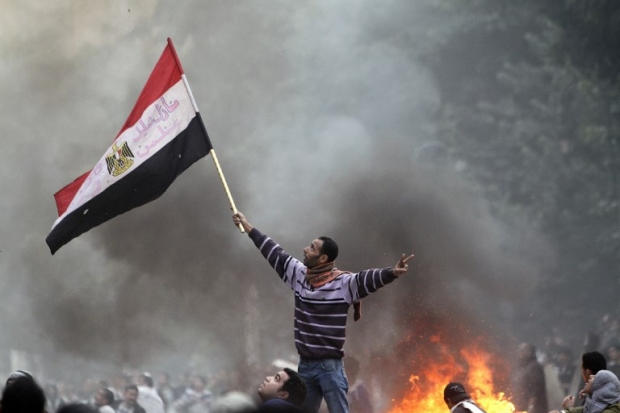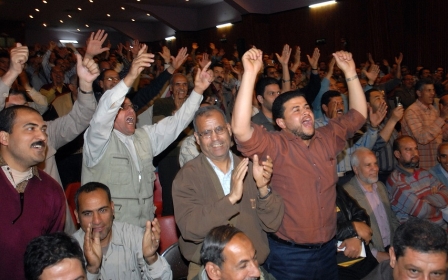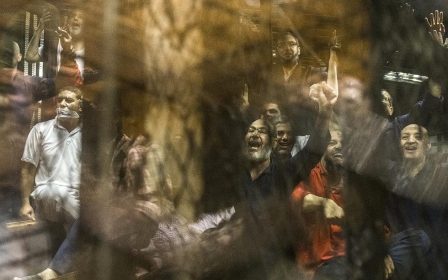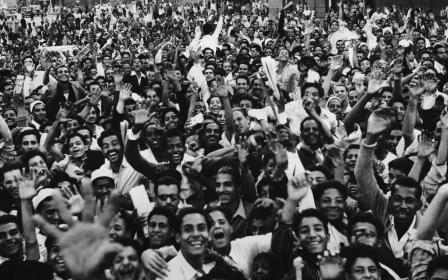Where is Abdulrahman? The search for my disappeared Egyptian cousin
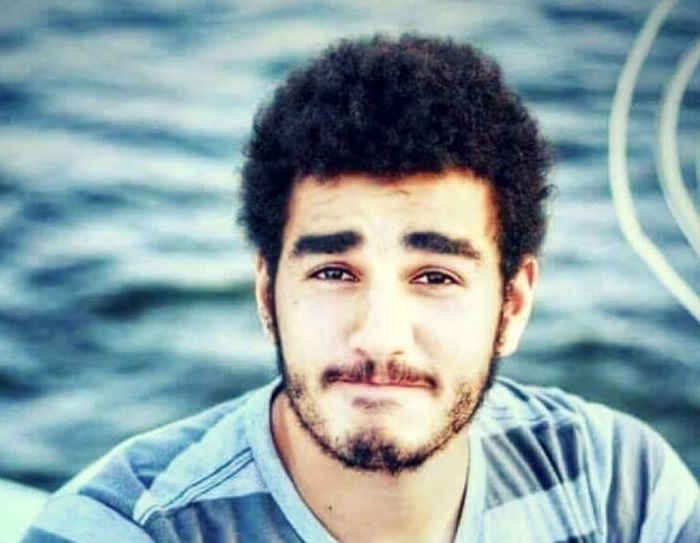
How privileged is your identity? If your government attempted to disappear you, would you have the ability to garner international attention and get out alive? Or are you an expendable citizen? A no-name with a family that has no connections or status to save you from the very regime that claims to protect you?
My cousin Abdulrahman Ahmed Elsayed was illegally captured by the Egyptian police on 19 July 2017 while visiting a friend who had recently fallen ill in Anatar, Cairo. None of his family or friends were alerted about his arrest and had to learn about it through word of mouth three days later.
Since Abdulrahman’s arrest, there has been no record of his detention and authorities refuse to publicly acknowledge his existence within their system
Abdulrahman is from Helwan, Cairo, and is your average 21-year-old: he works as an English instructor, is good to his family and like many Egyptians is deprived of the right to form a political identity as a result of the oppressive nature of the current military regime under President Abdel Fattah al-Sisi.
After the 2011 revolution, interest in political participation sparked among youth like wildfire and - to some extent - transcended the economic barriers that typically define Egyptian life within large cities and densely populated suburbs. Young people from an array of backgrounds were outraged, demanding political reform and insisting that the political climate needed to change for the better despite being unsure about the details.
Unfortunately, the short-lived spike in hope was met with mass slaughtering and the unlawful detention of citizens. Overall, popular Egyptian political will became limp and hopeless. Facebook posts now warrant jail time. Voicing dissatisfaction about the current military regime raises suspicions and is met with forced disappearances, torture and severe sentencing.
Lost in the system
According to an eyewitness, the policemen who arrested Abdulrahman did not have a prosecution order, nor did they witness him committing a crime. So his capture was illegal. Furthermore, Egypt’s penal code requires authorities to present detainees to a prosecutor within 24 hours of their arrest and, at that point, they are either charged or immediately released.
An individual can be missing for years before anyone knows if they are even alive
Since Abdulrahman’s arrest, there has been no record of his detention and authorities refuse to publicly acknowledge his existence within their system. The Egyptian government disappears individuals through unlawful, covert arrests and then denies the detainees’ existence until a punishable crime is assigned to them. An individual can be missing for years before anyone knows if they are even alive.
According to Stop Enforced Disappearances, a campaigned launched by the Egyptian Commission for Rights and Freedoms, from 2015-2017 there have been 1,400 accounted records of forced disappearances in Egypt. In July 2017, 61 cases of extrajudicial killings were recorded and at least 24 individuals who had been forcibly disappeared were found dead.
Although Abdulrahman’s case is not unique, it represents the struggle of so many Egyptian youth. Abdulrahman’s political identity was muffled as he was forced into silence and ultimately targeted because his profile as an educated young man with an online presence and facial hair - someone whom the government might suppose would be politically active - threatened the current military regime.
If Abdulrahman is so normal and innocent, what makes a young man like him an enemy of the state? Is it his religion, economic class, or is it his higher than average English comprehension?
All of the above.
Regime logic
Egypt is not unique in seeking to deprive citizens of their political, economic and religious identities. However, the degree to which these identities dictate how someone is treated and their functionality within Egyptian society is exceptional. Every detail of an individual’s identity serves as either protection or condemnation.
From 2015 to 2017, there have been 1,400 accounted records of forced disappearances in Egypt
- Egyptian Commission for Rights and Freedoms
While hipsters across the US attempt to complement their plaid shirts with a perfected handle-bar moustache, Abdulrahman’s sparse facial hair can be used to identify him as a Muslim Brotherhood sympathiser despite the fact that he isn't one.
Under the lens of the state, his entire being is questioned and the reality of who he was is warped. Instead of learning English to travel, he did it because he is a spy. Instead of praying at a mosque because it is close to his friend’s house, he did it because he’s affiliated with a religiously motivated political faction.
If this sounds moronic, that's because it is. Yet this is the logic under which Sisi’s military regime operates. As an Egyptian, Abdulrahman is at the mercy of the state and, like so many others, his forced disappearance is used to instil fear in communities and inspire unquestioned political compliance.
The same day Abdulrahman was captured, Egypt and the EU were meeting in Brussels to discuss trade, migration and security. While Sisi’s regime continues to block news sites such as Mada Masr and the Trump administration vilifies Muslims, this is the best US-Egypt relations have been in over 30 years. If the international community refuses to put pressure on Sisi’s backwards regime, who will?
- Mona Hassan Elsayed is an Egyptian American activist and an MA candidate in international peace and conflict resolution at the American University in Washington, DC. Her work focuses on identity, collective memory and post-conflict healing. You can visit her blog.
The views expressed in this article belong to the author and do not necessarily reflect the editorial policy of Middle East Eye.
Photo: A recent photo of Abdulrahman Ahmed Elsayed (MEE/Mona Hassan Elsayed)
New MEE newsletter: Jerusalem Dispatch
Sign up to get the latest insights and analysis on Israel-Palestine, alongside Turkey Unpacked and other MEE newsletters
Middle East Eye delivers independent and unrivalled coverage and analysis of the Middle East, North Africa and beyond. To learn more about republishing this content and the associated fees, please fill out this form. More about MEE can be found here.



